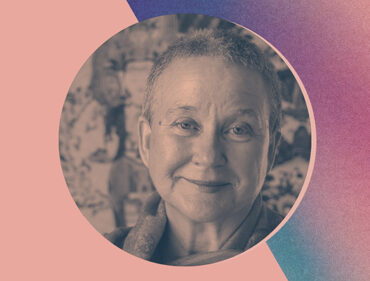Blog: Conscious Parenting Part 3: Getting out of the Way
By Isa Gucciardi, Ph.D.
The last post in this series on conscious parenting addressed how to recognize our children’s highest potential and why it is important to move out of the way of its expression. The question we were left with was, “How do I get out of the way?” One of the best ways to get out of the way is to look at your attachments to having your child be a particular way. Those attachments are probably a function of something that did not work in your own childhood.
For instance, let’s say you grew up without a mother present in your household and you keenly felt, and still feel, the absence of your mother. You grow, and you marry a woman and you have children – and then realize this woman is not really the person you thought she was. But now you have children, and because you remember how hard it was not to have a mother, you put up with all kinds of bad behavior from the child’s mother rather than take the child and leave the situation and take the risk that the child may grow up without a full time mother figure.
If you were not so attached to your child having a mother because of the pain you experienced from not having a mother present, you might have more clarity in responding to your spouse’s bad behavior. It is possible that not having this problematic woman in your child’s life on such a consistent basis might be the best thing for your child. But you cannot see or even consider this because of the unaddressed issues you carry from your own wounding from being motherless.
In many ways, when we talk about conscious parenting, we are talking about becoming more conscious of ourselves. We are talking about understanding what motivates us before we think about how we approach our children. The examination of our motivation and the way it drives decision-making is a good example of one of the steps in the process of becoming a more conscious parent.
So, one of the best ways to get out of the way and not risk interrupting your child’s authentic expression is to look deeply at your own experience of being parented. Seek to understand the aspects of your upbringing that worked best for you and your own self-expression — and ask how you can apply that understanding to serving your child’s expression. In this way, you can tap into your own resources and become your own mentor. You can also look at the aspects of your upbringing that did not work for you.
Given the emotional complexity of the modern environment, it is completely natural that we might need some help in understanding our own emotional history as we set the course for our children’s emotional well-being. Personally, I remember when I realized I was pregnant with my first child, I practically ran to the phone with the pregnancy test indicator still in my hand and called a therapist! I knew there was no way I was going to be able to meet the challenges of mothering with the experience of my own childhood informing me in an unexamined way.
Addressing our own unexamined experience helps us to be as clear as possible about how to support our children’s potential. With the clarity we gain by looking at our personal issues, we can better determine whether the experience of the larger cultural environment is supporting our children’s potential — or not. We will explore the importance of understanding the role of cultural context in shaping the optimal environment for our children’s growth in the next post on Conscious Parenting.
Editors’ note: This is the third post in a series on Conscious Parenting. Here are the first and second posts. If you would like to go deeper into some of the questions raised in this series, you may enjoy the Conscious Parenting, Coming to Peace, and Path of Service courses. And if you are expecting, check out Tracking Spirit in the Birth Environment.
ENJOYING THE STREAM OF CONSCIOUSNESS BLOG? SIGN UP FOR FREE UPDATES!



